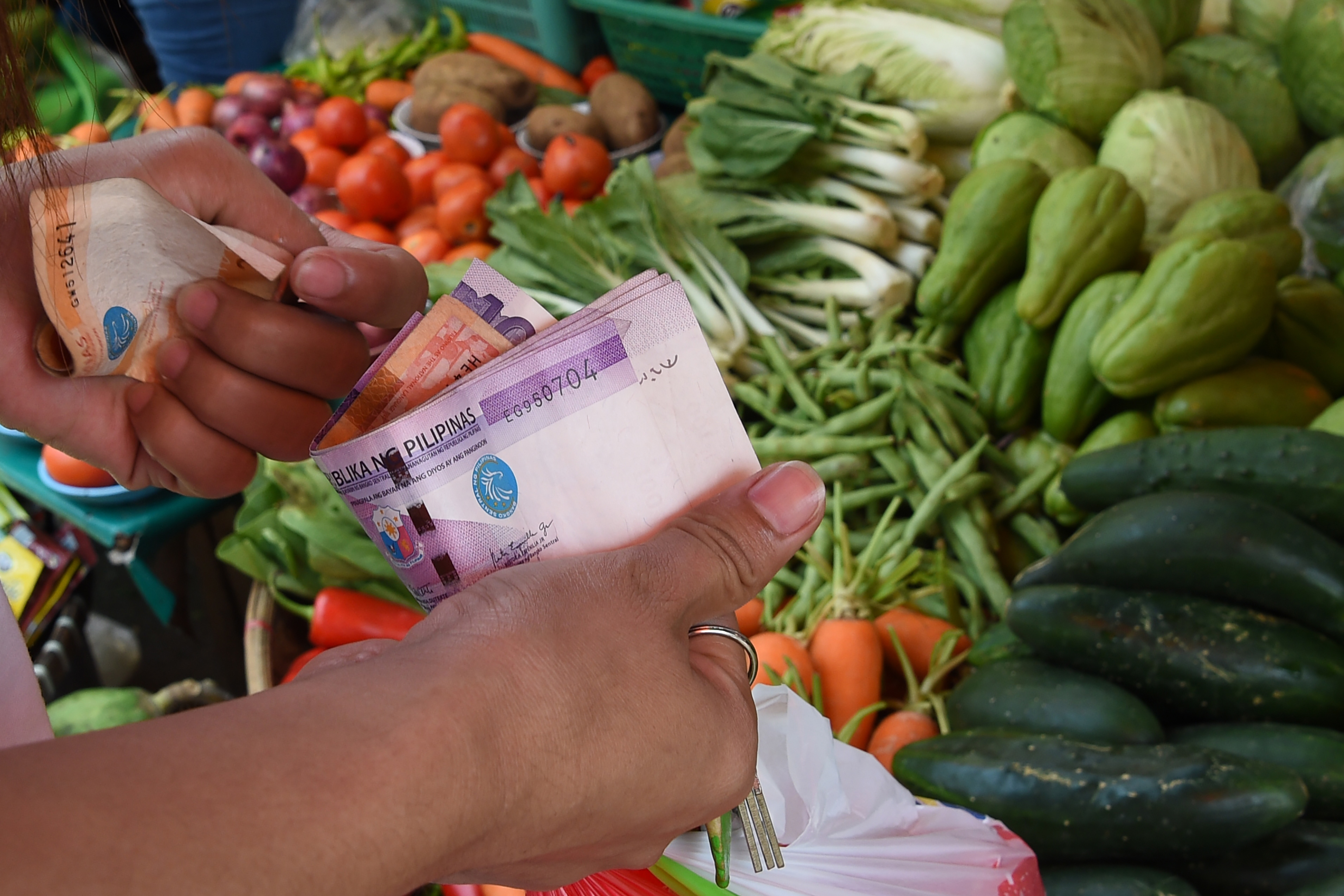April inflation jumps to 40-month-high of 4.9 percent
MANILA, Philippines—Expensive oil and high food prices made consumers shell out nearly P5 more in April for goods they bought for only P100 during the same month last year, as inflation jumped to a 40-month-high of 4.9 percent last month.
National Statistician Dennis Mapa on Thursday (May 5) reported that the rate of year-on-year increase in prices of basic commodities last April was the highest since the 5.2 percent posted in December 2018.
So far this year, headline inflation averaged 3.7 percent, but the Bangko Sentral ng Pilipinas (BSP) expects the rate to average 4.3 percent — above the 2 to 4 percent target range of manageable price hikes — as Vladimir Putin’s destruction of Ukraine sent fuel and commodity price soaring. The Philippines is a net importer not only of oil, but also of many merchandise items.
Philippine Statistics Authority (PSA) data showed that nationwide price levels last month were 1-percent higher than in March.
Mapa said price increases in food and non-alcoholic beverages quickened to 3.8 percent year-on-year in April from 2.6 percent last March mainly due to more expensive fish, meat and vegetables.
Article continues after this advertisementFood inflation alone rose 4 percent last month, up from 2.8 percent in March as flour, oils, as well as sugar prices also picked up.
Article continues after this advertisementTransport inflation was also a faster 13 percent than March’s 10.3 percent on the back of an 83.7-percent jump in diesel prices; 43-percent increase in gasoline prices; as well as 13.6-percent higher sea transport fares as a result of expensive oil, Mapa said.
Costly gas also spilled over to utilities or what the PSA lumped together as housing, water, electricity, gas, and other fuels basket of goods and services in the consumer price index (CPI). LPG, for instance, was 33.4-percent more expensive than in April 2021, while electricity costs increased 19.5 percent.
High inflation now threatens the economy as it would temper consumer spending at a time when economic growth engines were just recovering from the slump wrought by the prolonged COVID-19 pandemic.
Last week, the Washington-based multilateral lender World Bank warned that elevated global prices could spill over until 2024.
But Socioeconomic Planning Secretary Karl Kendrick Chua, the country’s chief economist, on Thursday assured that the government was trying to address high consumer prices, mainly by importing more food and distributing targeted subsidies to the most vulnerable sectors.
“World commodity prices remain high as a consequence of the ongoing Russia-Ukraine war. The impact is felt domestically not just on food and basic goods but also on transport and utilities,” Chua said.
“To address this, we have put in place a comprehensive set of interventions for all affected sectors,” said Chua, who also heads the state planning agency National Economic and Development Authority (Neda).
Chua noted that public utility vehicle (PUV) drivers, agricultural producers, as well as the bottom 50-percent income households will receive dole outs.
He said as of April 30 at least 180,000 public transport drivers and operators had already received P6,500 in fuel subsidy through the “Pantawid Pasada” program.
The Department of Energy, he added, also continues efforts to get P1 to P4 per liter discounts from oil firms for public transport, Chua said. The Department of Agriculture, he said, continues to implement a fuel subsidy program for 158,730 corn farmers and fisherfolk.
The government will distribute a total of P47.5 billion in financial assistance to sectors most vulnerable to oil price hikes. President Rodrigo Duterte’s economic team had stood firm that targeted subsidies and not oil excise tax suspension would ease inflation risks brought about by Putin’s aggression in Ukraine.
Also, Chua reiterated the Economic Development Cluster’s (EDC) earlier recommendation to Duterte to extend importation of more pork and rice at lower duties by extending two executive orders (EOs) issued last year. He also pitched for increasing coal and corn imports also at slashed tariff rates.
“The EDC also recommended importing more wheat and producing more cassava as feeds substitute to augment the alternatives for corn,” Chua said.
“The government is accelerating the implementation of these interventions to temper the impact of inflation and rising prices. In the meantime, as we shift more areas in the country to alert level 1, we expect to accelerate our recovery and increase our economy’s resilience from external shocks,” according to Chua.
